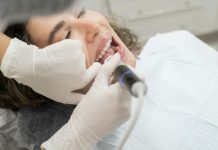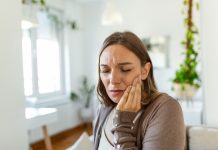
Age-related weakness is a common problem faced by many older adults.
A recent study from Ohio University has suggested that physical weakness in aging could be due to impairments in brain and nerve function, instead of changes in the muscles themselves.
The study involved 66 older adults, with an average age in their 70s, who were divided into three categories: severely weak, modestly weak, and strong based on their performance on a standardized physical test.
The participants were asked to push against resistance with their leg extensor muscles, using as much strength as they could generate.
When they reached their limit, the muscle was then stimulated electrically. If the muscle put out more force, it was a sign that the strength limitation was not from the muscle itself.
The team found that the weaker the participants, the larger a boost their muscles got from electrical stimulation.
The severely weak group, on average, received an increase of 14.2%, which was twice the 7.1% increase shown by the strong group.
The results suggest that the nervous system is a key factor in age-related weakness.
The findings of the study have important implications for addressing the age-related loss of muscle strength that can seriously reduce seniors’ mobility.
By showing that the nervous system plays a significant role in the problem, researchers can focus on finding new ways to improve the function of the nervous system to prevent age-related weakness.
Brian Clark, one of the researchers who conducted the study, believes that the findings may also be important in addressing other conditions related to muscle weakness, such as injuries or illnesses that affect the nervous system.
To summarize, the Ohio University study provides valuable insights into the underlying causes of age-related weakness.
The research suggests that the nervous system plays a significant role in the problem, and the findings could lead to new ways of preventing and treating muscle weakness in older adults.
The study could also have important implications for addressing other conditions related to muscle weakness.
How to prevent age-related weakness
Age-related weakness is a common issue among seniors that can significantly impact their quality of life.
Fortunately, there are steps that can be taken to prevent or slow down this process. Here are some tips to help prevent age-related weakness:
Exercise regularly: Engaging in regular exercise is one of the most effective ways to prevent age-related weakness. Both cardiovascular exercise and resistance training can help maintain muscle strength and mobility.
Seniors should aim to exercise for at least 30 minutes a day, five days a week, or as advised by their doctor.
Eat a healthy diet: A healthy, balanced diet can also help prevent age-related weakness. Seniors should consume plenty of fruits, vegetables, whole grains, lean protein, and low-fat dairy products. Staying hydrated is also important for maintaining muscle function.
Get enough sleep: Sleep is essential for the body to repair and regenerate. Seniors should aim for seven to nine hours of sleep per night to help prevent age-related weakness.
Manage stress: Chronic stress can have a negative impact on the body, including muscle weakness. Seniors should find ways to manage stress, such as meditation, deep breathing exercises, or talking to a therapist.
Stay active throughout the day: Sitting for long periods can lead to muscle weakness. Seniors should aim to stay active throughout the day, even if it’s just taking short walks or doing gentle stretching exercises.
Avoid smoking and excessive alcohol consumption: Smoking and excessive alcohol consumption can have a negative impact on muscle function.
Seniors should avoid smoking and limit alcohol intake to one drink per day for women and two drinks per day for men.
Stay up to date with medical check-ups: Regular medical check-ups can help identify and treat health issues that can lead to age-related weakness, such as osteoporosis or vitamin deficiencies.
Seniors should work with their healthcare provider to create a personalized prevention plan.
In summary, preventing age-related weakness requires a multifaceted approach that includes regular exercise, a healthy diet, adequate sleep, stress management, staying active throughout the day, avoiding smoking and excessive alcohol consumption, and regular medical check-ups.
By taking these steps, seniors can maintain their muscle strength and mobility, and enjoy a higher quality of life.
If you care about wellness, please read studies that olive oil may help you live longer, and vitamin D could help lower the risk of autoimmune diseases.
For more information about health, please see recent studies about fruits that could slow down brain aging and cognitive decline, and anti-inflammatory diet could help prevent fatty liver disease.
The research was published in JAMA Network Open and conducted by Brian Clark et al.
Copyright © 2023 Knowridge Science Report. All rights reserved.



